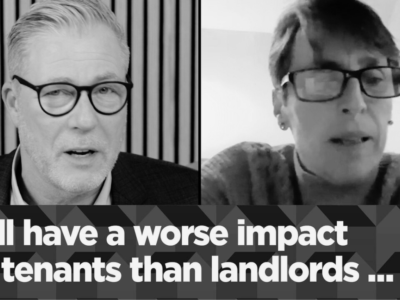A rise in licensing activity from local authorities in recent months could uphold high standards without making it more difficult for landlords to remain compliant, says PayProp.
The rental payment provider adds that updates and guidance relating to landlord licensing schemes are becoming an increasingly time-consuming part of a letting agency’s management service, while presenting an opportunity to increase their value proposition.
Councils press ahead with licensing changes
Despite the impact of the pandemic, local authorities went ahead with a range of consultations and applications for new licensing schemes during 2020.
Research released in early December by data platform Kamma found that 44 licensing consultations were in progress at the time.
The study also forecast that HMRC could collect £400 million in licensing fees and fines from landlords this year, as well as an additional £2 million in related unpaid taxes.
Since Kamma’s report, there have been numerous extra licensing developments affecting letting agencies and landlords.
Westminster, the borough with the largest share of the UK’s private rented sector, has launched a consultation on additional licensing of Houses in Multiple Occupation (HMO).
Also in London, Havering Council has pledged to continue with its latest licensing scheme rollout, despite the challenges of the pandemic. Meanwhile, Lambeth Council has launched a consultation to double the size of its existing licensing operation.
Areas outside the capital are also affected.
A consultation for additional licensing in Newcastle closed at the end of January, while a consultation to license an additional 1,500 homes in Manchester has been launched.
Towards the end of 2020, Liverpool City Council lodged an application to license 45,500 properties after its initial plan to license all 55,000 rental properties in the city was turned down by the government.
There have also been landlord licensing developments in Oxford, Doncaster, Gedling and Southend-on-Sea in recent weeks.
Licensing becoming a regulatory minefield for landlords
Trade body ARLA Propertymark has described this flurry of licensing activity as ‘socially irresponsible’, arguing that landlords will struggle to comply with new rules during an ongoing pandemic – and that local authorities will find it challenging to enforce them.
Alongside their crucial role in dealing with the impact of COVID-19 on the rental market, letting agents will now have the added responsibility of helping landlords navigate new local rules.
“In the circumstances, agencies are in a trusted position to help guide landlords through their licensing journey – giving them another opportunity to demonstrate their value in a competitive market,” says Neil Cobbold, Chief Sales Officer at PayProp.
“Landlords will be looking for agents’ help when it comes to responding to consultations, completing applications and meeting deadlines so they can avoid significant financial penalties for non-compliance,” he says.
Government confirms no plans for national licensing
There have recently been calls from several rental market stakeholders for the government to introduce a national landlord licensing scheme.
Those calling for national licensing suggest it could replace the often complex licensing schemes run by local authorities while also improving compliance, promoting high property standards and introducing a level playing field for all landlords.
However, the government recently confirmed that it has no such plans.
Housing Minister Christopher Pincher said the government will continue to work with local authorities to raise standards in the rental sector.
Back in 2019, the government commissioned an independent review of selective licensing.
The findings put forward a number of recommendations, including an easier renewal process for existing licensing schemes and streamlining the application process.
It was reported at the time that the government ‘broadly welcomed’ the suggestions but an official response was never published. Local authorities are therefore likely to set the agenda on landlord licensing for the foreseeable future.
“When implemented effectively, selective and additional licensing schemes can contribute towards improving standards in the rental sector,” says Cobbold.
“PayProp would welcome any carefully-considered new regulations, with the impact on landlords, agents and tenants taken into account when drawing them up.”
“With the pandemic likely to have an impact well into the future, local authorities will need to consider the financial implications for landlords during a difficult time for the sector, as well as their own capacity to effectively police any new or extended schemes,” he adds.
“Licensing is a long-term solution and, when looking at other UK professions, a balanced approach to regulation has had the most beneficial impact.”
“Landlords will continue to require the help of letting agencies when it comes to complying with any new regulations as well as the existing systems in their local areas,” Cobbold concludes.

























Comments